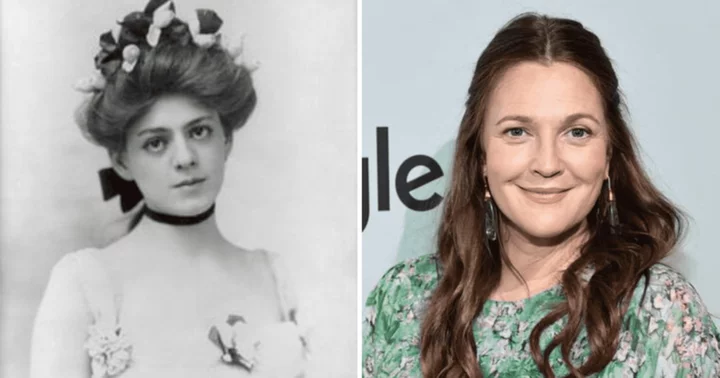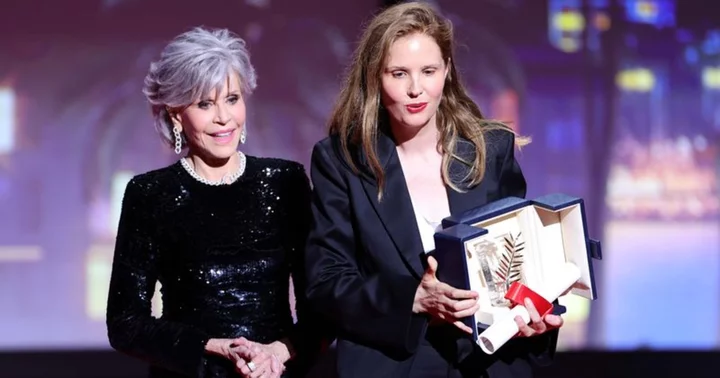NEW YORK CITY, NEW YORK: Drew Barrymore has found herself in hot water, after announcing the return of her eponymous talk show 'The Drew Barrymore Show', amid the ongoing strikes by SAG-AFTRA and WGA.
The 48-year-old actress took to her Instagram to share a lengthy video, explaining her choice to restart her show, which was scheduled to return on September 18.
However, Barrymore’s announcement was met with severe criticism from the WGA, which led the producers to postpone the premiere of her talk show.
Following the backlash, the ‘Blended’ star shared an emotional apology video, in which she described the situation as "complex."
She stressed that her intentions were never to upset or harm anyone and expressed a desire to take responsibility. The actress also provided further insight into her reasons for proceeding with the new season of the show.
However, now it has come to light that Drew is not the only Barrymore family member with a reputation for hindering Hollywood strikes
A New Yorker writer recently revealed that Barrymore’s great-aunt Ethel Barrymore, was pivotal in blocking a Hollywood labor action exactly 94 years ago.
Who is Ethel Barrymore?
Ethel Barrymore, who died in June 1959, was an American actress and a member of the Barrymore family of actors.
Born in Philadelphia, Pennsylvania, Ethel was the second child of the actors Maurice Barrymore and Georgiana Drew. She was the sister of actors John Barrymore and Lionel Barrymore, the aunt of actor John Drew Barrymore, and the great-aunt of actress Drew Barrymore.
Ethel Barrymore was a prominent Broadway performer and a well-recognized theatre actress in New York City. She is regarded by many as the best actress of her generation, according to the Walk of Fame.
Barrymore appeared in her first feature motion picture, 'The Nightingale', in 1914 and then went on to star in several plays, including ‘The Imprudent Young Couple’ and ‘Rosemary’.
How did Ethel Barrymore block a Hollywood labor action?
Barrymore, along with friend her Marie Dressler, was a vocal advocate for the Actors' Equity Association and played a prominent part in the 1919 strike.
In the absence of SAG, the Equity represented stage actors and fought for their recognition. With the talkies garnering popularity in 1929, Equity president Frank Gillmore actively attempted to unionize Hollywood actors under the association.
Michael Schulman, a writer at The New Yorker, revealed on Twitter that in June 1929, Gillmore made a shocking announcement that no Equity actors could appear in a sound picture without an all-union cast
As a result of ‘sustained pushback’ from the studios, actors left the sets and started finding local jobs. The conflict lasted 11 weeks until Barrymore made a "bombshell" statement undercutting Gillmore's efforts and asserting that Equity and the studios had reached a compromise.
Gillmore aggressively denounced the intrusion, calling it “regrettable.” Union members were left frustrated after Barrymore’s announcement, especially after it was said that she had met with Jack Warner and Irving Thalberg in her dressing room.
One actor lambasted the actress, saying "If Miss Barrymore could not say anything beneficial for us the least she could have done would have been to keep still.
As a result of Barrymore’s action, the Equity was badly ‘whipped’. In August, Equity folded, after a tearful meeting that "developed into a bitter harangue of Ethel Barrymore, upon whose shoulders the entire blame for the failure of the campaign was placed by the speakers."
“But there was talk of forming a body of screen actors independent of Equity." It took four more years to materialize, and it was called...SAG,” Schulman said in his tweet.









